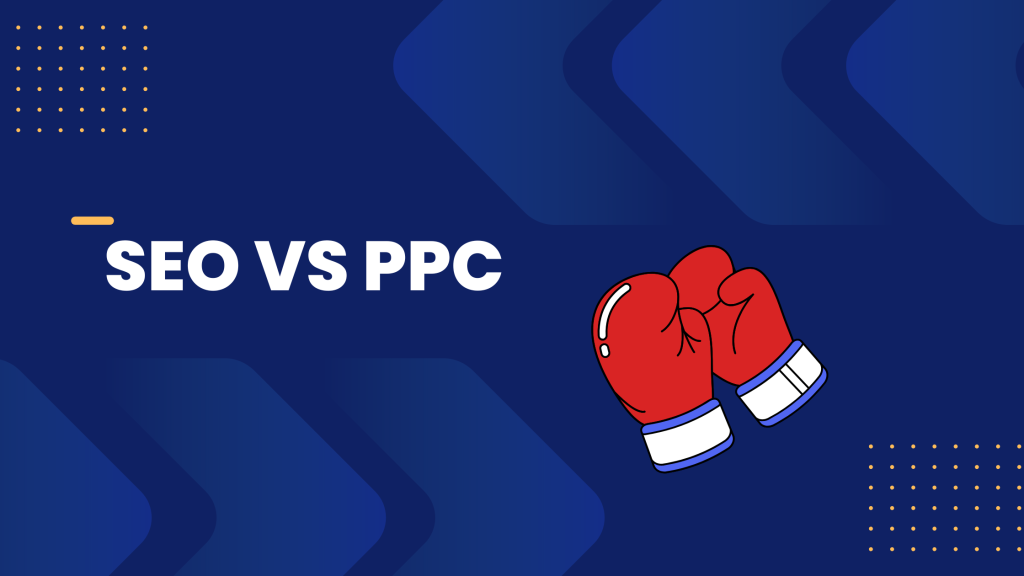
When it comes to digital marketing, businesses often face a common dilemma: SEO or PPC. Both strategies have their pros and cons, and choosing the right one depends on your business goals, budget, and timeline. In this guide, we’ll break down the differences between SEO (Search Engine Optimization) and PPC (Pay-Per-Click Advertising) to help you make an informed decision.
📞 Call Us Today for a Free Consultation!
👉 Call Now
What is SEO?
SEO (Search Engine Optimization) is the process of optimizing your website to rank organically on search engines like Google, Bing, and Yahoo. It focuses on improving your site’s content, keywords, backlinks, and technical structure to increase visibility without paying for clicks.
Pros of SEO:
✔ Long-Term Results – Once your site ranks well, it can generate consistent traffic without ongoing ad spend.
✔ Cost-Effective – Organic traffic is free; you don’t have to pay for every click.
✔ Builds Trust & Credibility – Users tend to trust organic results more than ads.
✔ Higher Click-Through Rates (CTR) – Studies show that 70-80% of users skip paid ads and click on organic results.
Cons of SEO:
❌ Takes Time – Ranking on the first page of Google can take months.
❌ Algorithm Updates – Google frequently updates its algorithms, affecting rankings.
❌ Requires Ongoing Effort – SEO isn’t a one-time process; it requires regular content updates, link-building, and optimization.
What is PPC?
PPC (Pay-Per-Click) is an online advertising model where you pay for each click on your ad. These ads appear at the top of search results, social media platforms, and other digital channels. Google Ads and Facebook Ads are the most common PPC platforms.
Pros of PPC:
✔ Instant Visibility – Ads appear on top of search results immediately.
✔ Targeted Traffic – You can target specific demographics, locations, and search terms.
✔ Scalable & Measurable – You control your budget and track performance easily.
✔ Effective for Short-Term Goals – Great for product launches, seasonal sales, and lead generation.
Cons of PPC:
❌ Expensive – Costs can add up quickly, especially for competitive keywords.
❌ Short-Term Results – Traffic stops as soon as you stop paying for ads.
❌ Ad Blindness – Many users ignore paid ads, preferring organic search results.
When to Use SEO
- You want to build long-term authority and organic traffic.
- You have time to invest in ranking higher.
- You want cost-effective marketing with high ROI over time.
- You aim for local SEO or eCommerce SEO to drive organic sales.
When to Use PPC
- You need quick traffic for a new product, service, or event.
- You have a dedicated advertising budget to spend on paid ads.
- You want precise audience targeting based on location, interests, and demographics.
- You’re running limited-time promotions or seasonal sales.
Best Strategy: A Mix of Both
For most businesses, a combination of SEO and PPC works best. Start with PPC for quick visibility and leads, then invest in SEO for long-term organic growth.
Example: An online store can use PPC ads to drive immediate traffic while optimizing SEO for long-term ranking on Google Shopping.
Conclusion
Both SEO and PPC have their advantages, and the right choice depends on your business needs. If you want sustainable growth, focus on SEO. If you need immediate results, go for PPC. However, the best approach is often to use both strategies for maximum impact.
Need help with SEO or PPC? Contact Sparkling Innovation today and let’s grow your business together!
📞 Call Us Today for a Free Consultation!
👉 Call Now
